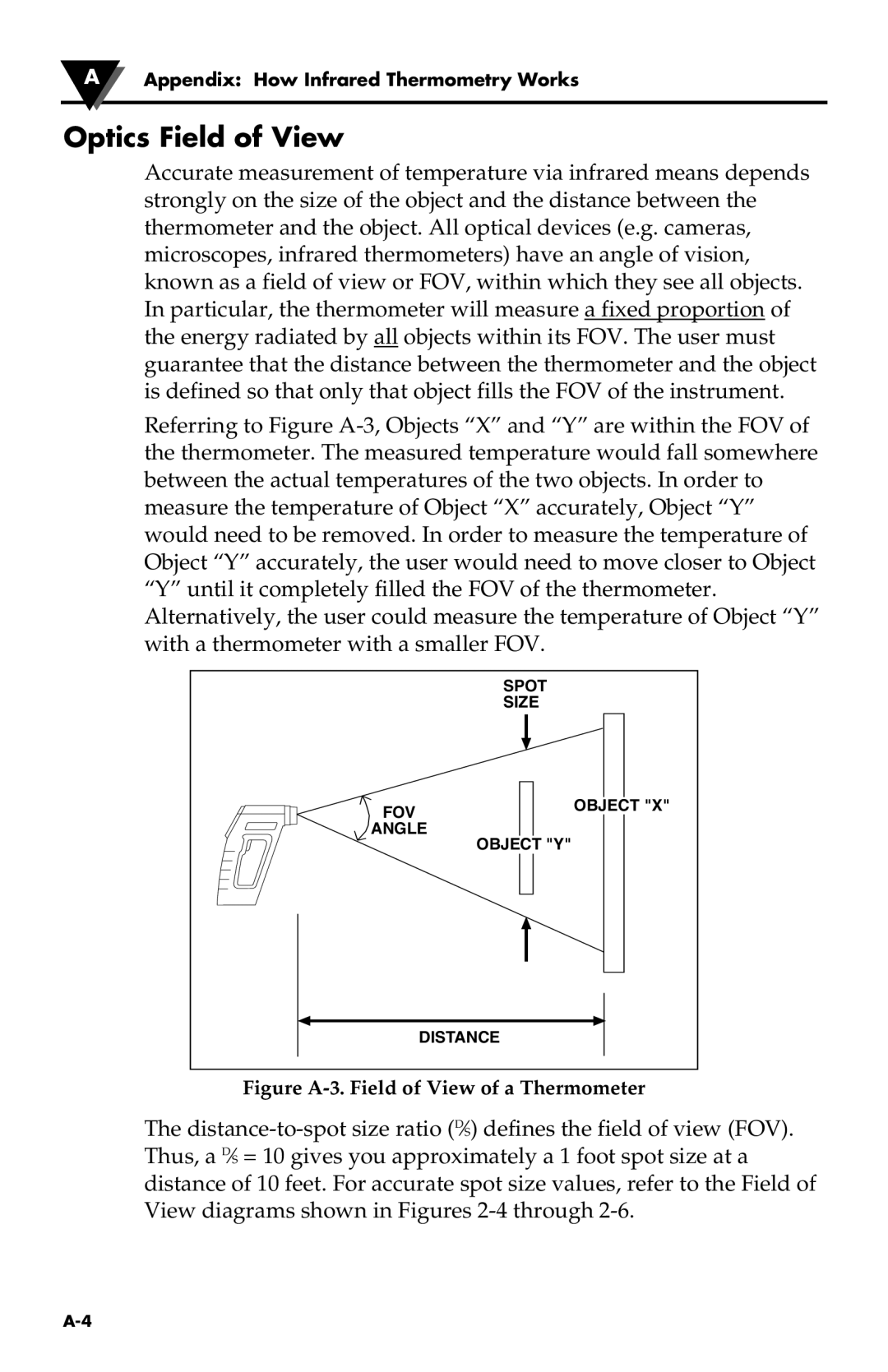
AAppendix: How Infrared Thermometry Works
Optics Field of View
Accurate measurement of temperature via infrared means depends strongly on the size of the object and the distance between the thermometer and the object. All optical devices (e.g. cameras, microscopes, infrared thermometers) have an angle of vision, known as a field of view or FOV, within which they see all objects. In particular, the thermometer will measure a fixed proportion of the energy radiated by all objects within its FOV. The user must guarantee that the distance between the thermometer and the object is defined so that only that object fills the FOV of the instrument.
Referring to Figure
SPOT |
|
SIZE |
|
FOV | OBJECT "X" |
| |
ANGLE |
|
OBJECT "Y" |
|
DISTANCE |
|
Figure A-3. Field of View of a Thermometer
The
